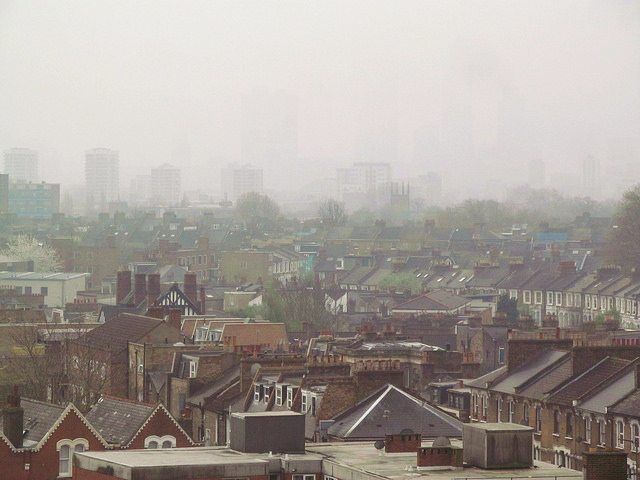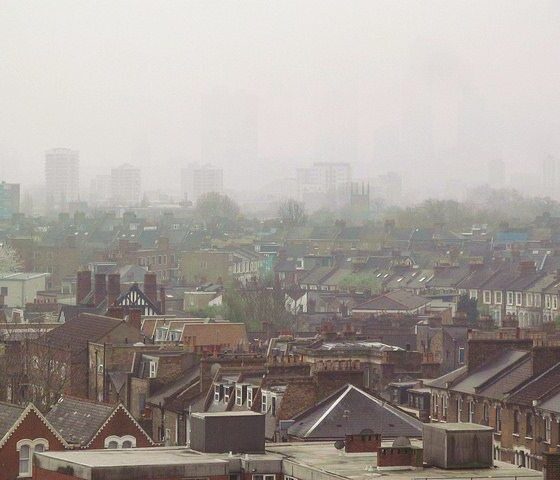

Environment
New Clean Air Act Needed to Tackle Air Pollution
ClientEarth has today urged politicians to back calls for new Clean Air Act legislation to address the UK’s toxic air pollution levels.
ClientEarth, the environmental lawyers who are taking the UK government back to court over its failure to deal with air pollution, have outlined details of the fresh legislation they believe is necessary.
Proposals for a new Act come on the 60th anniversary of the introduction of the original Clean Air Act in 1956 and follow the referendum on 23rd June in which voters backed the UK’s withdrawal from the European Union. EU air quality laws are currently being breached by the UK government but those laws may not apply or could be weakened once the UK leaves the EU.
An estimated 40,000 people die early due to air pollution in the UK every year. The government’s current plans, which it was ordered to produce by the Supreme Court after losing to ClientEarth last year, do not project the UK will have legal levels of air pollution until 2025 at the earliest.
ClientEarth Chief Executive, James Thornton said:
“Today marks the 60th anniversary of the landmark 1956 Clean Air Act. Sadly today, air pollution causes tens of thousands of early deaths every year and leaves many more seriously ill. Instead of making the same arguments against taking action that were made 60 years ago we need the government to wake up to our air pollution crisis. We need a new Clean Air Act to safeguard our legal protections and ensure our right to breathe clean air.”
The great Smog of 1952 swathed London in a toxic smog of pollution, resulting in thousands of deaths over a four-day period. The Clean Air Act was a ground-breaking piece of legislation that led to the phase out of coal in Britain’s towns and cities. According to ClientEarth, a new Clean Air Act would:
- Tackle the sources of modern air pollution such as diesel.
- Safeguard the legal protections that we could be stripped of on leaving the EU.
- Improve on existing legislation, both EU and domestic, to ensure that we enshrine the right to breathe clean air in law.
ClientEarth lawyer, Alan Andrews said:
“For the last five years we have fought a legal battle against the government to force them to tackle the public health crisis caused by air pollution.
This shows the need for effective laws that safeguard people’s health and protect the environment. That is why we need a Clean Air Act that tackles the sources of modern air pollution and allows us to hold governments to account where they fail to clean up the air we breathe.”
ClientEarth are calling for a Clean Air Act that would:
- Retain the objectives under the EU Ambient Air Quality Directive as a minimum safeguard on human health;
- Adopt revised objectives based on World Health Organisation guidelines;
- Guarantee the public the right to access the courts to enforce its provisions, in accordance with the Aarhus Convention. The procedure must be fast, affordable, allow for substantive review of air quality plans and policies and provide effective judicial remedies, including fines.
- Consolidate the complex and disparate body of domestic, EU and international air pollution laws into one coherent and effective piece of legislation;
- Clarify the roles and responsibilities of national government, local authorities, the Mayor of London and the devolved administrations;
- Lay down a national framework for effective Clean Air Zones which phase out diesel and accelerate the shift to zero emission transport;
- Implement the UK’s pollution reduction targets for 2020 and 2030 under the Gothenburg Protocol and the newly agreed EU NEC Directive, in order to tackle trans-boundary air pollution;
- Ensure coherence with other relevant policies and legislation, particularly the Climate Change Act and planning guidance;
- Require national, local and city authorities to collect adequate information on air pollution – including data from a minimum number of air quality monitoring stations – and proactively provide the public with that information, including through smog warnings during high pollution episodes; and
- Require national, local and city authorities to take measures to reduce exposure to air pollution – particularly for vulnerable groups such as children, older people and those suffering from pre-existing health conditions.
ClientEarth’s court case against the UK government over illegal levels of air pollution has been fast-tracked by a High Court judge and will be heard on 18th and 19th October. It challenges the government’s inadequate air quality plans and requests the court to order new plans containing measures to bring air pollution within legal limits as soon as possible.
The deficient plans were the government’s response to the Supreme Court’s ruling in April 2015 which ordered the Government to take “immediate action”. The case centres on illegal levels of nitrogen dioxide (NO2) – a harmful gas emitted mainly by diesel vehicles.


 Environment12 months ago
Environment12 months agoAre Polymer Banknotes: an Eco-Friendly Trend or a Groundswell?

 Features11 months ago
Features11 months agoEco-Friendly Cryptocurrencies: Sustainable Investment Choices

 Features12 months ago
Features12 months agoEco-Friendly Crypto Traders Must Find the Right Exchange

 Energy11 months ago
Energy11 months agoThe Growing Role of Solar Panels in Ireland’s Energy Future





























